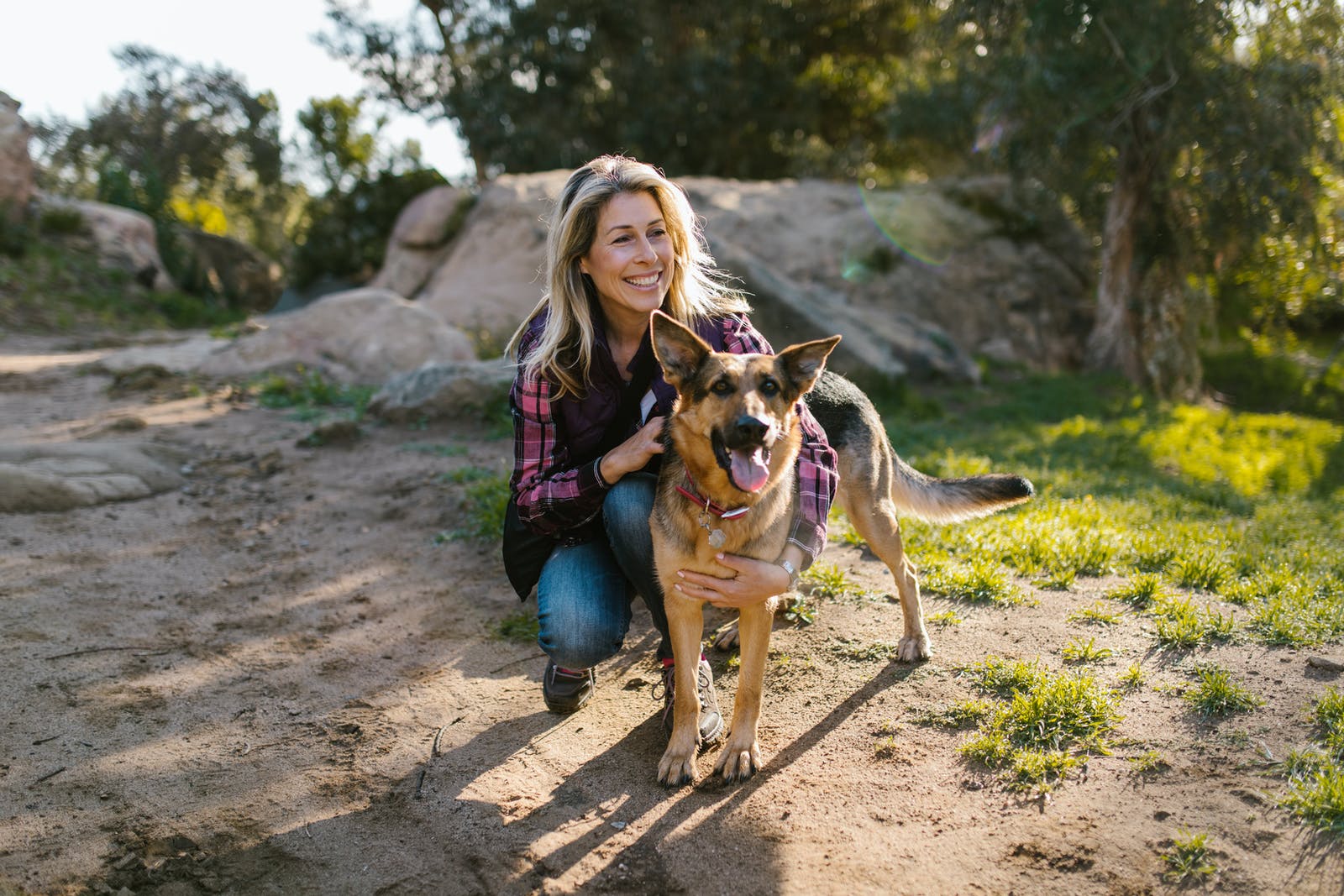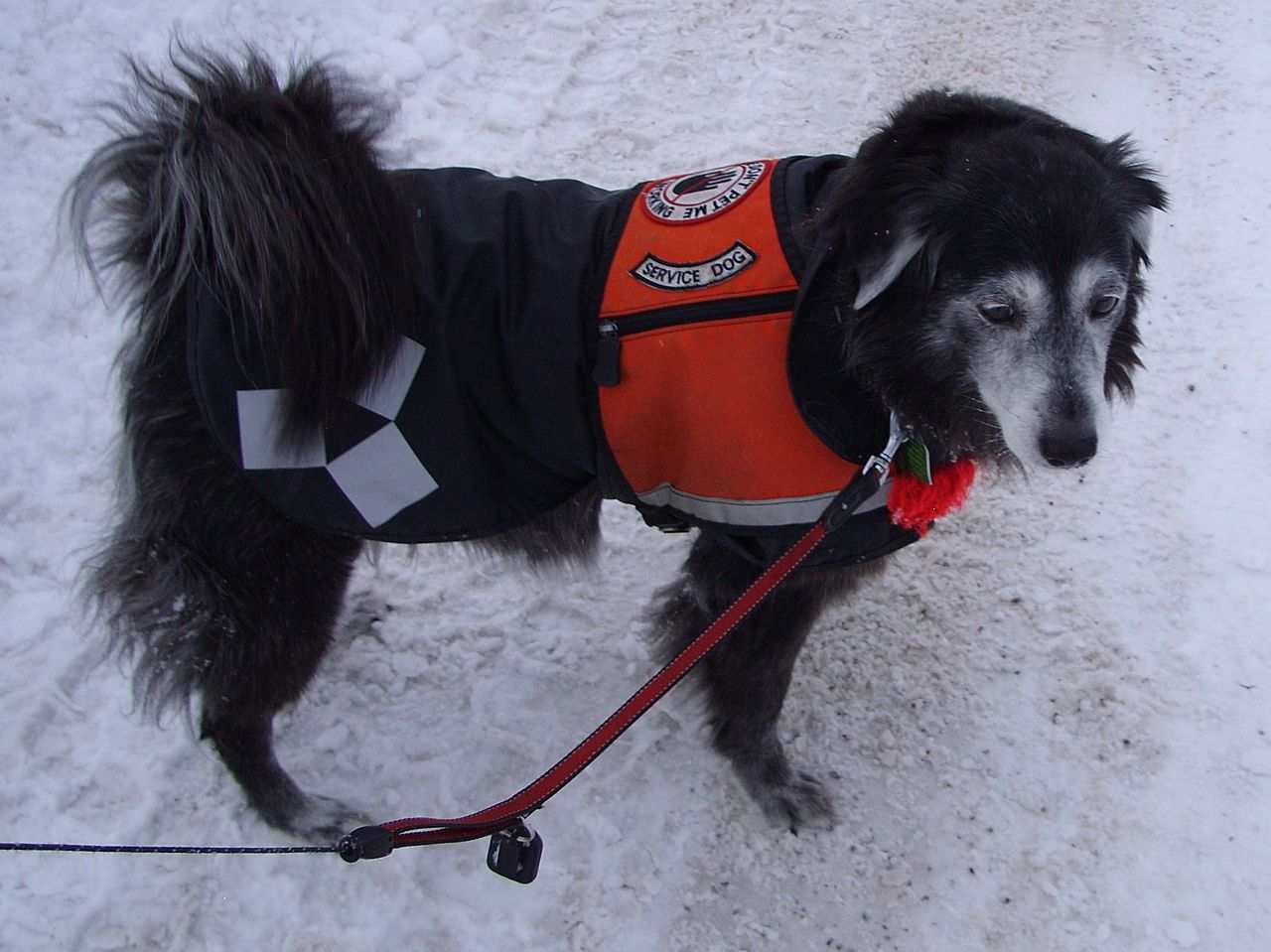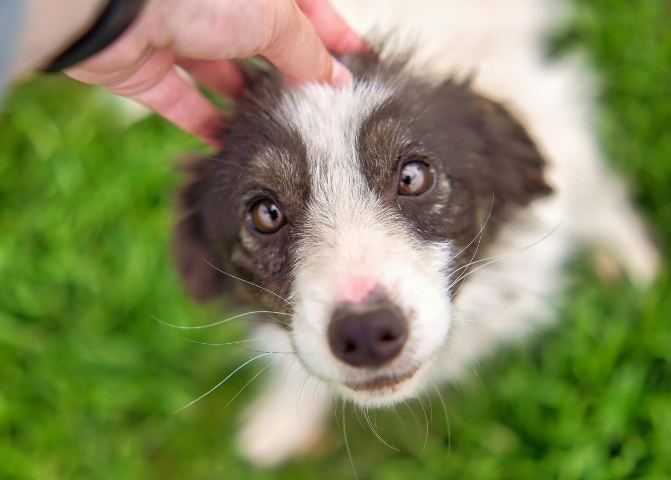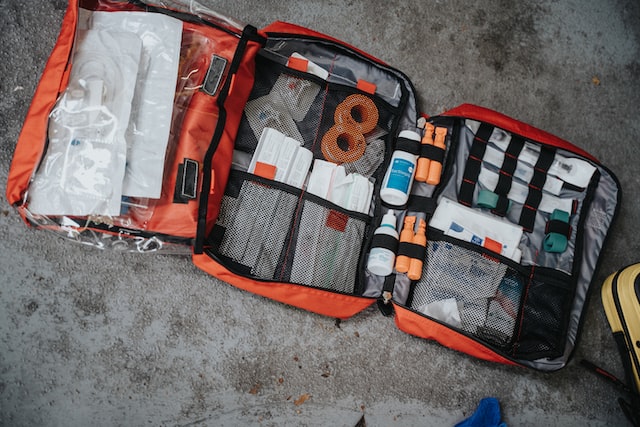
The importance of service animals is almost indescribable, as it is so crucial! A service dog does not only assist their owner by performing specific tasks but also brings confidence and a willingness to embrace life again!
But what does it take to properly train a service dog? It requires a lot of work, practice, patience, consistency, and money. Getting a trained service dog is a no-go for many people due to the high costs associated with it —up to $20,000-$30,000—which is why more and more individuals are searching for alternatives.
Some people embark on a self-training journey with their paw friends to make them their reliable service dogs, while others decide to reach out to charities to obtain a trained service dog.
Service dog charities work to provide support, training, and placement for these exceptional dogs, and today we will explore their transforming role in many people’s lives!
The Important Role of Service Dogs (What Do They Do?)
If you are a pet parent, you likely adore your paw friend and make sure they are healthy, happy, and safe.
Service dog owners not only love and care for their dogs, they rely on them every day to be able to function properly and regain their confidence! Sometimes, even basic activities that most people do as part of their daily routines without even thinking about them, may be exhausting or impossible to execute by individuals with disabilities.
Service dogs undergo extensive training that ensures they can fulfill basic obedience commands without hesitation; are excellently mannered, particularly in high-distracting environments featuring other animals and people; and can reliably perform specific tasks based on their owners’ disability and needs.
A small list of the tasks service animals can be trained to perform includes providing mobility support; guiding individuals with visual impairments; alerting people with hearing impairments to specific sounds in their surroundings; providing tactile stimulation such as Deep Pressure Therapy, nose-nudging, pawing and giving a kiss to calm their owners down when an anxiety episode arises; reminding the owner to take medication; retrieving items; providing crowd control; alerting to medical episodes such as increased/decreased blood sugar levels, seizures and cardiac episodes, etc.
The assistance of a service dog saves lives!
Furthermore, service dogs bond with their owners on a deep emotional level, which makes them an inseparable team. The strong emotional connection additionally enhances the overall well-being of the handler, encouraging them to be more open and confident.
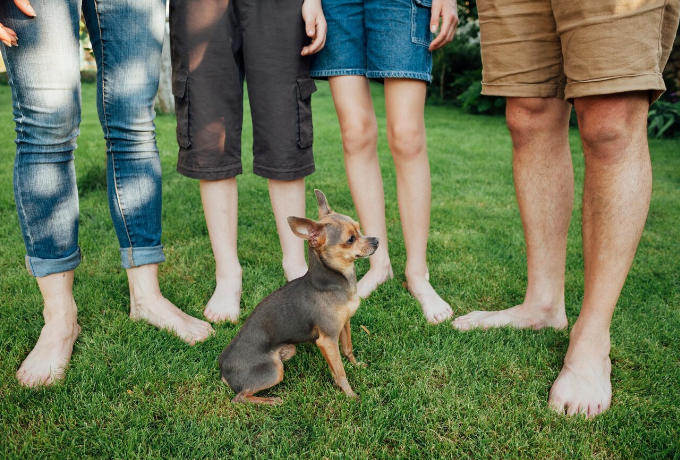
The Important Role of Service Dog Charities (What Do They Do?)
Service dog charities play an essential role in bridging the gap between those in need and the life-changing assistance that service dogs can provide. Let’s explore what these organizations do!
Puppy Testing
Service dog charities often conduct puppy testing as part of their selection process for potential service dogs. These tests are designed to assess various traits and behaviors that are important for the role of a service dog. Some common aspects of puppy testing include:
Temperament
While dogs can display some unwanted behaviors while still young, they should possess certain traits to be considered suitable for service dog work. Temperament testing aims to observe a pup’s reactions in different situations and around various stimuli.
Puppies with a calm and friendly disposition have advantages over those who are too shy, hyperactive, or reactive.
Sociability
Good social skills are mandatory for service dogs! Early training and exposure to various stimuli will help a pup develop confidence and be desensitized to potential triggers.
“Sociability” as a part of puppy testing assesses how well the puppy interacts with people and other animals. Service dogs must be comfortable and well-behaved in social settings.
Naturally curious puppies who are not afraid of physical contact and are eager to investigate are favored for service dog work.
Sensory Sensitivity
It tests the puppy's sensitivity to sounds, sights, and smells. Service dogs often need to work in environments with distractions and must not be overly reactive to stimuli.
For example, a puppy should be able to remain calm when exposed to abrupt noises. It is normal, of course, for pups to startle briefly, but they should recover quickly.
Physical Aptitude
It ensures the puppy is in good physical health, which is needed for them to be trained as a service dog.
If you are interested in more detailed information about puppy testing, you might take a look at Volhard’s Puppy Aptitude Test.
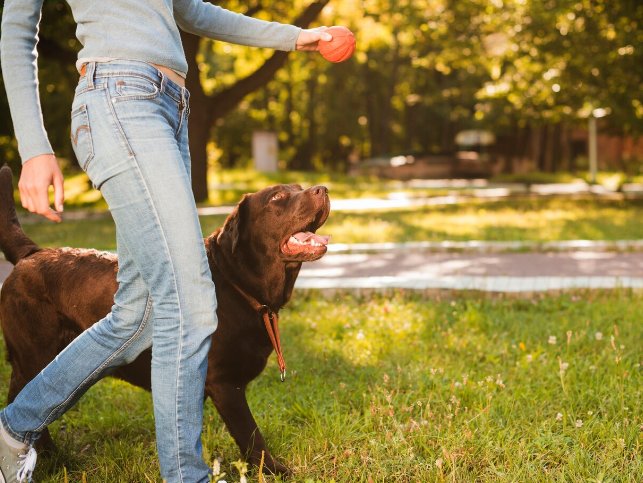
Training & Placement
Service dog charities are engaged in extensive training programs to prepare dogs for their role as service animals and teach them to reliably perform tasks based on the needs of their future handlers.
As mentioned at the beginning of the article, training includes obedience, specific service dog tasks (such as retrieving items, opening doors, providing Deep Pressure Therapy, alerting to anxiety or medical episodes), and socialization to ensure the dog is comfortable in various environments and able to remain focused.
The process can take several months to years, depending on the complexity of the trained tasks and the individual needs of the handler. Typically, dogs are placed after two years of training.
After training, charities (carefully) match dogs with recipients (their future handlers). This matching process considers a lot of factors including the dog's temperament and skills, the handler's lifestyle, daily routine and living environment, specific needs, and ability to properly care for the dog and maintain their progress.
Matching ensures the dog and their handler will be able to develop a strong bond and effectively function as a team!

Financial Support
Obtaining a service dog involves significant costs, which are often prohibitively high and deter many people from their goals... With that being said, service dog charities play a crucial role in alleviating the financial burden that accompanies the process of getting a service dog through various methods.
Financial Assistance Programs
Many charities offer structured programs for financial assistance to support individuals in covering the costs of acquiring and training a service dog. These programs may include grants, subsidies, or low-interest loans tailored to the financial needs of applicants.
Fundraising
Charities often offer options for fundraising. These can include organizing events, offering online platforms for crowdfunding, or providing resources to help recipients raise funds from their communities.
Free-of-Charge Models
Some charities have incorporated a model that provides service dogs to recipients for free. Often, recipients need to pay an application fee only. This approach relies on donations, sponsorship, and fundraising initiatives to cover the high expenses involved in training and placing service dogs.
By providing financial assistance, charities make service dogs more accessible and ensure that individuals in need of a service dog can obtain one without being financially hindered. This type of support can greatly enhance the quality of life of future service dog handlers!

Advocacy & Raising Awareness
Another important role service dog charities play involves advocating for the rights of individuals with disabilities who rely on service dogs.
Public Education
Charities educate the public about the nature of service animals and their rights and responsibilities. This is often related to debunking myths and misunderstandings that surround service dogs, such as their access rights and appropriate interactions with passersby.
Unfortunately, some people still do not understand what a “service dog” means and how to respectfully interact with service dog teams.
Legal Advocacy
Some service dog charities collaborate with advocacy groups and even lawmakers to support service dog teams. These collaborations aim to strengthen laws that protect the rights of service dog teams.
Service dog charities may also participate in lobbying activities, and contribute to the drafting of legislation that ensures service dog handlers and their trained assistance animals have equal access to public spaces, transportation, housing, and other accommodations.
By doing so, these organizations help raise awareness and improve the legal framework that supports the rights of service dog teams.
Community Networking
Charities often engage with local communities to aid in improving the understanding and acceptance of service dogs.
This can include providing educational materials, hosting events, and offering resources to businesses and institutions on how to accommodate service dog teams.
Through community networking, service dog charities help create a supportive environment for service dog teams.
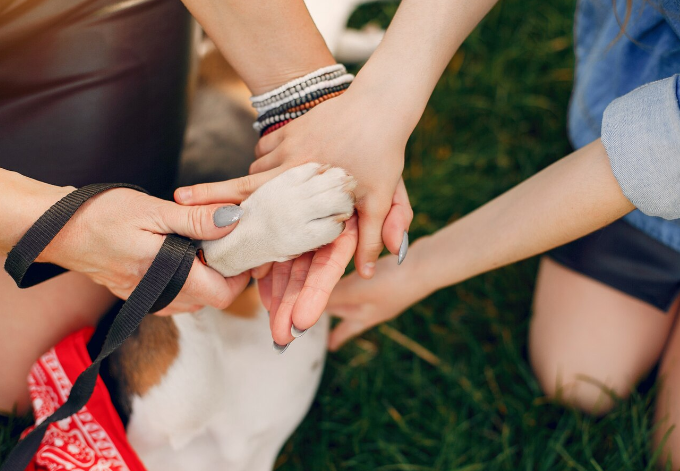
Ongoing Support
Charities that provide trained service dogs usually strive to support both the dog and their handler throughout their partnership. This often involves ongoing support after the placement has been done.
Training
In terms of training, many charities offer ongoing training advice and follow-up sessions to ensure that the service dog and their handler can function as a team and the dog’s progress is maintained.
When placing an already trained dog, it is usually the recipient who needs to catch up on the tasks and skills needed to be a good part of a service dog team. Also, the handler should be able to maintain the dog’s progress and consider this a long-term goal.
Behavior
If any behavioral issues occur during the partnership, the charity that provided the service dog may offer consultations and support on how to address these issues.
Behavioral issues can arise due to various factors such as changes in the handler's routine, new environments, or the dog's own development. Sometimes, it is more about adjusting between the dog and the handler that ensures a harmonious partnership.
Moreover, maintaining open communication with the charity allows for continuous improvement in the handling and care of the service dog. They can offer insights based on their experience and expertise, which can significantly enhance the quality of life for both the handler and the dog. Ultimately, the goal is to create a partnership that is not only functional but also deeply rewarding and fulfilling for both parties involved.
Veterinary Care
Charities often collaborate with veterinarians to ensure regular check-ups, vaccinations, and treatments (if needed) are provided.
Additionally, they may offer financial assistance or discounted services to handlers, which helps the placed service dogs receive proper medical help and remain healthy. This is a prerequisite to continue performing their duties as service animals!
Equipment
Service dog charities may also assist handlers by providing supplies based on the dog’s needs and the tasks they perform.
This can include items such as custom harnesses designed for mobility assistance or guiding, vests that identify the dog as a service animal, specialized gear, and other accessories to support the dog in their role.
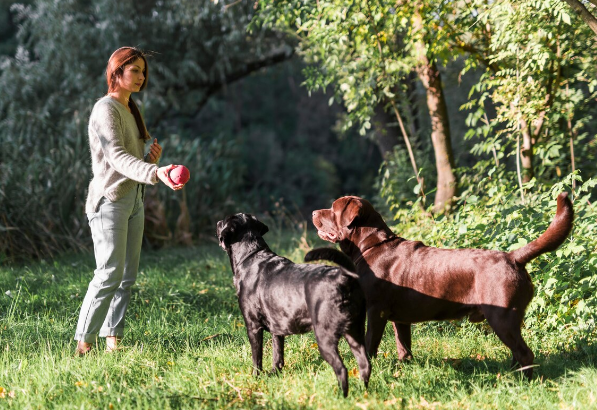
Service Dog Charities
We will list below several service dog charities, that you might be interested in. You can, of course, do extensive research and find organizations that best suit your needs.
Guide Dogs for the Blind (US)
“All services are provided at no cost — this includes your guide dog, transportation to and from one of our campuses in California or Oregon, instruction, equipment, and more.
Our classes are two weeks long, minimizing disruption to your personal and professional commitments.
We provide highly customized instruction; classes generally have 6-8 students and the ratio of students to instructors is 2:1.
During your stay with us, you will enjoy a private hotel-style room. Our beautiful student residences have libraries, music, computer, and exercise rooms, and all meals are lovingly prepared by our kitchen staff. We also have a full-time nursing staff ensuring that our clients stay healthy while in class.
Guide Dogs for the Blind provides our alumni with a lifetime of support. You will become part of a world-class Alumni Association and also receive the following benefits: financial assistance for veterinary care, as needed; in-person follow-up visits; access to a dedicated support center; and when the time comes for your guide dog to retire, we can discuss the potential for a successor dog.
Based in the U.S., Guide Dogs for the Blind provides guide dogs to visually impaired individuals, offering a range of services including training, follow-up support, and community integration”.
Guide Dogs | The Guide Dogs for the Blind Association (UK)
“We’re a charity, almost entirely funded by donations, and we are the world’s largest assistance dog organisation. As world leaders in puppy socialisation and dog training, we’re the only organisation to breed and train guide dogs in the UK. We’re also the largest employer of specialists dedicated to helping children and young people overcome the challenges of sight loss”.
Paws with a Cause
Contact Details
“Paws With A Cause breeds and custom-trains Assistance Dogs for people with physical disabilities, hearing loss, seizures, and autism. PAWS trains the following types of Assistance Dogs:
-Service Dogs;
-Hearing Dogs;
-Seizure Response Dogs;
-Dogs with Children with Autism.”
“To ensure an Assistance Dog can meet the needs of a client, it has to pass a specialized temperament test and comprehensive health screening to enter PAWS’ training program. The dog is matched to a client based on the person’s lifestyle, temperament and the physical characteristics required to complete the needed tasks”.
Canine Companions for Independence
“Canine Companions is leading the service dog industry so our clients and their dogs can live with greater independence. We provide service dogs to adults, children and veterans with disabilities and facility dogs to professionals working in healthcare, criminal justice and educational settings. Since our founding in 1975, our dogs and all follow-up services are provided at no cost to our clients”.
“Is there a fee to receive a service dog from Canine Companions?
No, Canine Companions service dogs and all follow-up services are provided free of charge to the recipient. Students are responsible for their transportation to and from the regional training center, their meals during Team Training and depending on the training center in your regional area, the cost of staying in a hotel. Once matched with a dog, graduates of the program are responsible for costs associated with care of the assistance dog including food, grooming and routine veterinary expenses.”
The Warrior Canine Connection
“WARRIOR CANINE CONNECTION (WCC) TRAINS AND PLACES SERVICE DOGS TO ASSIST VETERANS WITH MOBILITY IMPAIRMENTS AND/OR TO HELP MITIGATE THE SYMPTOMS OF POST-TRAUMATIC STRESS DISORDER (PTSD) OR TRAUMATIC BRAIN INJURY (TBI). WE ALSO TRAIN AND PLACE ASSISTANCE DOGS THAT WORK IN OTHER CAPACITIES, SUCH AS FACILITY DOGS AND MILITARY FAMILY SUPPORT DOGS. EACH TYPE OF PLACEMENT HAS SPECIFIC ELIGIBILITY REQUIREMENTS, WHICH ARE FURTHER EXPLAINED BELOW. “
“There is no fee for the dog or for the training. Applicants are not required to participate in fundraising or public relations activities without their expressed and voluntary permission.
Dogs are matched with Veterans based on the dog’s skills, strengths, temperament, and energy level, as well as the applicant’s needs, experience, personality, and lifestyle. There may be an indefinite wait for the right dog to become available for a particular applicant.
Per our accreditation with Assistance Dogs International, existing WCC clients who have applied for a successor dog are given priority on the waiting list, provided they are in good standing and continue to meet applicable eligibility requirements”.
Service dog charities play a pivotal role in providing support to people in need of service dog assistance. These organizations are dedicated to training dogs with suitable temperaments for service dog work and placing them with their future handlers after a careful matching process.
We encourage support to these organizations, as they contribute significantly to enhancing the quality of life and independence of individuals with disabilities.






